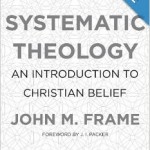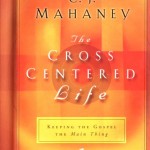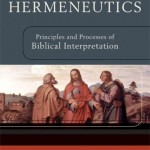
D.A. Carson has famously pointed out that the remarkable thing about these qualifications is how unremarkable they are. With the exception that an elder be able to teach and not be a recent convert, every other qualification listed here by Paul in 1 Timothy 3 is enjoined upon every Christian.
Let’s briefly explain and apply the character traits required of elders and then observe two realities about the list worth noticing.
THE ELDER’S NOBLE TRAITS
An elder is to be above reproach. This phrase serves as an umbrella for all the requirements that follow. Being above reproach does not mean that he maintains sinless perfection, rather is means that his demeanor and behavior over time have garnered respect and admiration. Everything that now follows in 3:2-7 simply flesh out what it means that an elder be above reproach.
An elder is the husband of one wife. Literally, the phrase reads “one-woman man.” Just exactly whom this qualification would exclude has been the subject of long and anxious debate. Some think Paul is excluding men who are single, others think he is excluding polygamists, and still others believe it excludes a man who has ever been divorced. Yet, the qualification has in mind marital faithfulness, so the elder Paul has in mind is faithful to his one wife. The point of the qualification is that sexual purity is a requirement for everyone holding the office of elder. Sexual purity in the church plays a uniquely important role in the church’s witness and evangelism to a world consumed with sexual immorality. Brothers, don’t let a day pass without understanding the war for purity that rages around you. This issue of sexual purity regularly, and prominently, disqualifies men from ministry. With Christ’s power and the Spirit’s leading, fight for purity.
An elder is sober-minded, self-controlled, and respectable. These qualifications distinguish an elder as being watchful, sober in his desires, feelings, and attitudes. He is not fixed on power, lust, anger, or anything else, but is self-controlled. If these are in place, the man will ordinarily be respectable. This would also impress the importance of discipline on an elder, as we will soon see in chapter four.
An elder is hospitable. Hospitality is one of the most tangible expressions of the gospel practiced in the church. The word itself literally means “loving strangers.” Rarely will you find a man that talks about being gifted in hospitality, yet it’s such an important display of God’s love that Scripture requires elders be known as hospitable. These would be men that seem to make a ministry of greeting everyone at church. Men who naturally help those in need. Men who regularly open their homes to people or use his lunch hour at the work place to express hospitality to co-workers or other people he comes across.
An elder is not a drunkard, not violent but gentle, not quarrelsome. I doubt these qualifications need much explanation. A couple questions would be, “Is the man patient and gentle in the midst of conflict? Does he avoid needless fighting and disagreement, and instead pursue the work of a peacemaker?”
An elder is not a lover of money. A man’s money will indicate a man’s heart, plain and simple. Does he give generously and sacrificially? Are his investments earthly minded or heavenly minded? Does he organize his life around the goal of monetary gain or the pursuit of godly objectives?
An elder must manage his own household well, with all dignity keeping his children submissive, for if someone does not know how to manage his own household, how will he care for God’s church? We began our series on 1 Timothy by noting Paul’s definition of the church as God’s household. In this verse Paul again shows himself to be pristine in logic, for if a man cannot manage his house, why should we expect him to manage God’s house? And let us give unique attention here. Because few things shipwreck a man’s current and potential fitness for eldership as does the management of his household, particularly his children. Paul is not demanding that children be converted, nor is he demanding that children be perfect. However, he is demanding that an elder’s children have a general demeanor that is submissive, obedient, and respectful of their father’s authority. Therefore, a prospective elder would be a man that gives godly attention and care to his children (if he has them).
Growing up in the church, I have been over to many a church leader’s home. It has not been rare in my experience to find a church leader to be quite different at his house and with his family. Paul is saying that this should not be so. If you want to see the true measure of a man’s leadership, follow him to his family.
An elder must not be a recent convert. He must not be νεόφυτον: a novice, or literally “newly planted.” The point is that the elder be mature in his faith. He must be so, otherwise he may become puffed up with conceit and fall into the condemnation of the devil. Immaturity is ground in which pride and demonic condemnation can find fertile soil. Therefore, an elder should have a pronounced humility and spiritual maturity.
Finally, an elder he must be well thought of by outsiders. What unbelievers think about potential elders is important. He must have a strong reputation with those outside the church, if not, Paul says he might fall into disgrace, into a snare of the devil. A reputation that is poor with lost people means that he is vulnerable to falling into disgrace or a trap of the Evil One. Thus, a proper elder will have wise engagement with the wider community and that engagement will lead to him being well-thought of by outsiders.
TWO THINGS TO NOTE
There area two important realities we should note from the list of noble traits.
First, note the importance of maturity. Paul does not say that the man must be married, that he must have children, or that he must be of a certain age. Paul is preeminently concerned that the elder be a model of Christlike maturity.
Second, note the schemes of the enemy. Two times in our text Paul mentions the devil; his condemnation and snare. Make no mistake about it, Satan is out to get the elders of the church. It is basic military strategy and the oldest trick in the book. The best way to defeat an army is to attack its command and control. The best way to attack a local church is to attack its leadership. Men in the church, you must ever be on your guard in this battle. Pastors in the church, you must never lay down in this battle. Let the church pray diligently for her pastors.
A man characterized by these noble traits will be one who is mature, and one who is under constant assault from the enemy.
Later this week we will look at the elder’s noble teaching.











